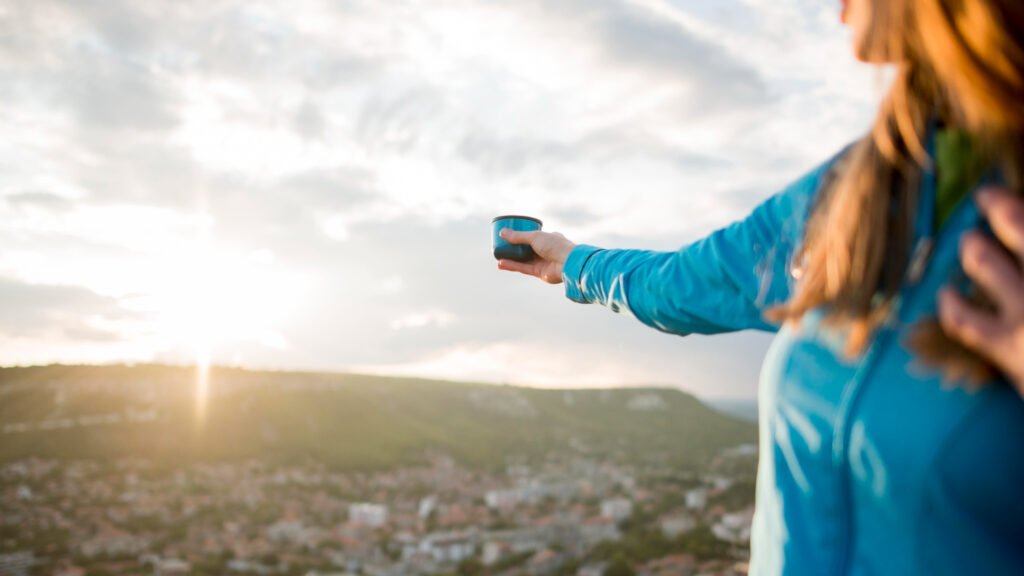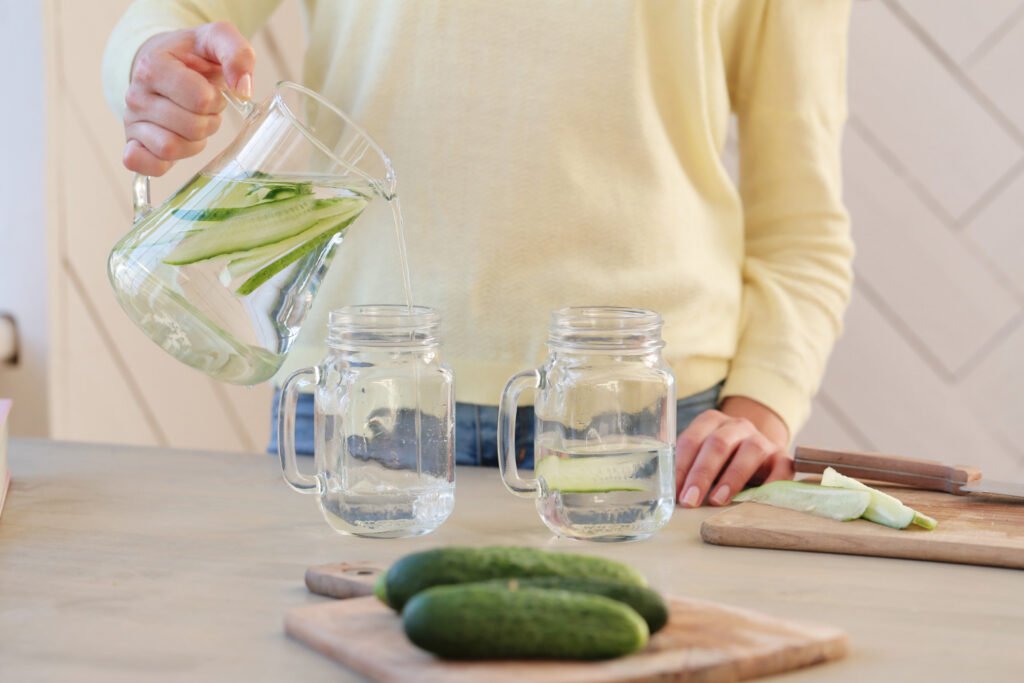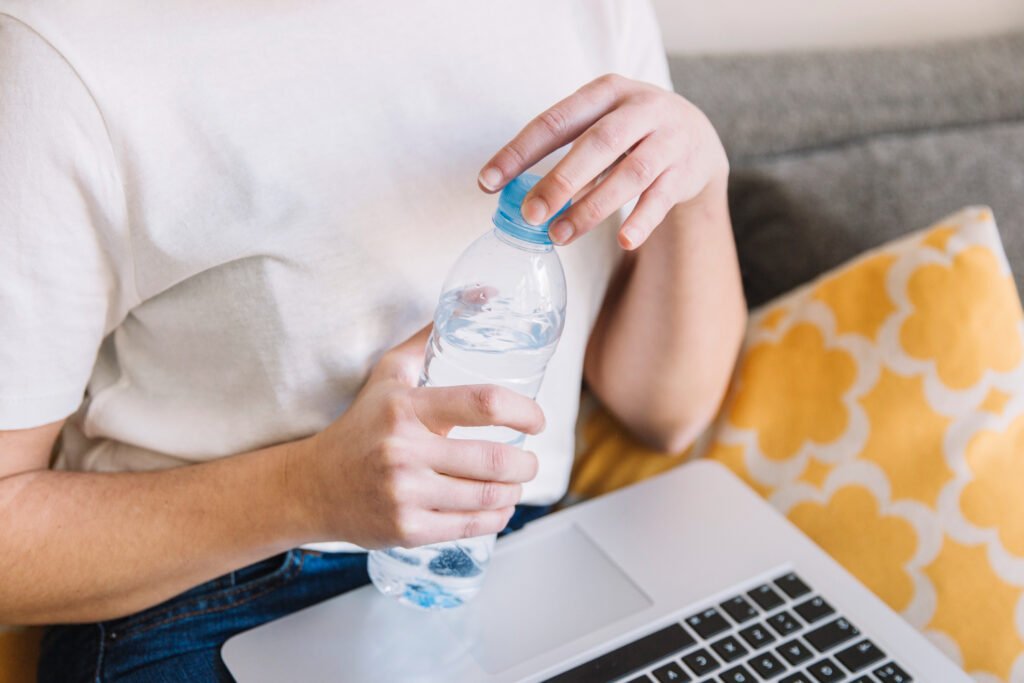
Table of Contents
Overview
Proper hydration is one of the simplest yet most important habits for maintaining good health. Water plays a vital role in nearly every bodily function, from regulating temperature to aiding digestion and keeping the skin healthy. While it’s crucial to drink water throughout the day, drinking at specific times can amplify the benefits of hydration. In this guide, we’ll explore the best times to drink water for optimal health and how to make the most of your hydration habits
First Thing in the Morning

After a night of sleep, the body wakes up naturally dehydrated. Drinking a glass of water immediately upon waking helps to replenish fluids lost during the night and kickstarts metabolism for the day. It can also help flush out toxins and prepare your digestive system for breakfast. A glass of lukewarm water with lemon can be even more beneficial, providing a gentle detox effect and adding a dose of vitamin C.
Benefits of Morning Hydration
- Boosts Metabolism: Drinking water in the morning can help increase your metabolism by up to 30%, aiding in calorie burning.
- Flushes Toxins: It helps in detoxifying the body by promoting the elimination of waste products.
- Improves Alertness: A hydrated brain is more alert, helping you to start the day with better focus and energy
Before Meals

Drinking water around 30 minutes before meals is a great way to enhance digestion. It helps to prepare the stomach for food intake and stimulates digestive juices. Additionally, drinking a glass of water before eating can promote a feeling of fullness, which may help prevent overeating and support weight management.
Benefits of Drinking Water Before Meals
- Improves Digestion: Prepares the stomach for food, aiding in better digestion.
- Prevents Overeating: Promotes satiety, which can help you eat smaller portions and maintain a healthy weight.
- Enhances Nutrient Absorption: Supports the digestive process, ensuring that nutrients from food are absorbed effectively.
While Eating Meals

While it’s important not to overdo it, sipping water during meals can support digestion by keeping the digestive system lubricated. It helps break down food, making it easier for the body to absorb nutrients. However, drinking too much water during meals may dilute digestive enzymes, potentially slowing down the digestion process
Benefits of Sipping Water During Meals
- Aids in Food Breakdown: Helps with the breakdown of food for smoother digestion
- Prevents Dehydration: Ensures the body stays hydrated during the process of digestion.
- Supports Nutrient Absorption: Facilitates the absorption of vitamins and minerals from the food
The Health Benefits of Tomatoes
After Physical Activity

Exercise leads to fluid loss through sweat, making it crucial to rehydrate after physical activity. Drinking water after a workout helps replenish lost fluids, supports muscle recovery, and prevents cramps. It’s advisable to drink 16-24 ounces of water for every pound of body weight lost during exercise to restore hydration levels.
Benefits of Post-Workout Hydration
- Replenishes Fluids Lost Through Sweat: Helps the body recover from the dehydration that occurs during exercise.
- Supports Muscle Recovery: Prevents muscle cramps and soreness, promoting faster recovery.
- Maintains Electrolyte Balance: Drinking water after exercise helps restore the balance of electrolytes that are lost in sweat
How Lemons and Limes Can Improve Your Health
When Feeling Tired or Lethargic

Fatigue can often be a sign of dehydration. When you feel tired, drinking water can help re-energize your body. Dehydration affects the flow of oxygen to the brain, leading to a drop in cognitive function and energy levels. Drinking water can quickly improve alertness and combat feelings of lethargy
Benefits of Hydration for Energy Levels
- Boosts Energy: Drinking water helps to maintain blood pressure, enabling efficient oxygen delivery throughout the body.
- Improves Focus: Hydration is crucial for optimal brain function, helping you stay alert and productive.
- Prevents Headaches: Sometimes, headaches are due to dehydration, and drinking water can alleviate the discomfort.
Before Bedtime (But With Caution)

While drinking water before bed has its benefits, it’s important to balance your intake to avoid disrupting sleep. A small glass of water an hour before bed can help maintain hydration during sleep and support the body’s natural detoxification processes. However, too much water may lead to frequent bathroom trips, affecting sleep quality
Foods That Are Surprisingly Bad for Your Cholesterol
Benefits of Bedtime Hydration
- Prevents Dehydration During Sleep: Ensures that your body stays hydrated throughout the night.
- Supports Detoxification: Aids in the body’s natural process of flushing out toxins.
- Maintains Healthy Skin: Proper hydration helps keep the skin supple and rejuvenated
When Feeling Hungry

Thirst and hunger signals can often be confused. If you experience hunger pangs, especially between meals, try drinking a glass of water first. Often, the sensation of hunger can actually be a sign of dehydration. Drinking water can help curb unnecessary snacking and support weight management.
Benefits of Drinking Water When Hungry
- Helps Differentiate Hunger and Thirst: Drinking water first can help you determine if you are truly hungry or just dehydrated.
- Supports Weight Loss: Curbing unnecessary snacking can help reduce calorie intake.
- Prevents Mindless Eating: Drinking water helps to regulate appetite and may reduce cravings
Fruits That Help With Weight Loss
Hydration Tips for Optimal Health

To maximize the benefits of hydration, follow these tips for incorporating water into your daily routine
- Carry a Water Bottle: Keeping a water bottle with you makes it easier to sip throughout the day.
- Set Reminders: Use alarms or apps to remind you to drink water at regular intervals.
- Infuse Your Water: Adding natural flavors like lemon, mint, or cucumber can make water more enjoyable to drink.
- Monitor Your Urine Color: Pale yellow urine indicates proper hydration, while darker urine suggests you need to drink more
Understanding Your Daily Water Needs
The amount of water a person needs varies based on factors such as body size, activity level, climate, and overall health. The common recommendation is to drink at least eight 8-ounce glasses of water a day, known as the “8×8” rule. However, individual needs can be higher, especially for athletes or those living in hot climates. Listening to your body’s thirst cues and adjusting your water intake accordingly is key.
The Importance of Electrolytes
While water is essential, maintaining electrolyte balance is also crucial for hydration. Electrolytes like sodium, potassium, magnesium, and calcium play vital roles in nerve function, muscle contractions, and hydration balance. After intense exercise or illness that causes excessive fluid loss, consider drinks that replenish electrolytes.
Sources of Electrolytes
- Coconut Water: Naturally rich in potassium.
- Sports Drinks: Formulated to replenish lost electrolytes, though they may contain added sugars.
- Fruits and Vegetables: Bananas, spinach, and avocados are excellent sources of natural electrolytes
The Takeaway
Staying hydrated is about more than just drinking water; it’s about drinking water at the right times to maximize its health benefits. From starting your day with a glass of water to replenishing fluids after a workout and staying hydrated throughout the day, strategic hydration can significantly improve your overall well-being. Implementing these practices will not only support better physical health but also enhance cognitive function and energy levels.
Water is indeed a life-sustaining resource, and using it wisely can help maintain optimal health. Whether you aim to improve digestion, support weight loss, or enhance mental clarity, drinking water at the right times can be a game-changer. Stay mindful of your hydration habits and make water a key component of your daily wellness routine for the best results.
By following these guidelines, you can ensure that your body remains adequately hydrated and ready to meet the demands of your daily life
Frequently Asked Questions
- Why is it important to drink water first thing in the morning?
Drinking water in the morning helps rehydrate the body after a night’s sleep, kickstarts the metabolism, flushes out toxins, and improves alertness. It prepares your digestive system for the day and can even help boost your metabolism. - Should I drink water before or after meals?
It is beneficial to drink water about 30 minutes before meals to aid digestion and promote a feeling of fullness, which can help prevent overeating. Sipping water during meals can also support digestion, but avoid drinking too much, as it may dilute digestive enzymes. - How much water should I drink after exercising?
After exercising, it’s important to replenish the fluids lost through sweat. Aim to drink 16-24 ounces of water for every pound of body weight lost during exercise. This helps rehydrate the body, support muscle recovery, and maintain electrolyte balance. - Can drinking water help with weight loss?
Yes, drinking water can aid weight loss by promoting a feeling of fullness, reducing the likelihood of overeating, and helping the body metabolize fat more efficiently. Staying hydrated also supports digestion and nutrient absorption. - Is it okay to drink water before bedtime?
Drinking a small amount of water before bed can help keep the body hydrated throughout the night. However, be cautious not to drink too much, as this could lead to frequent bathroom trips and disrupt sleep












